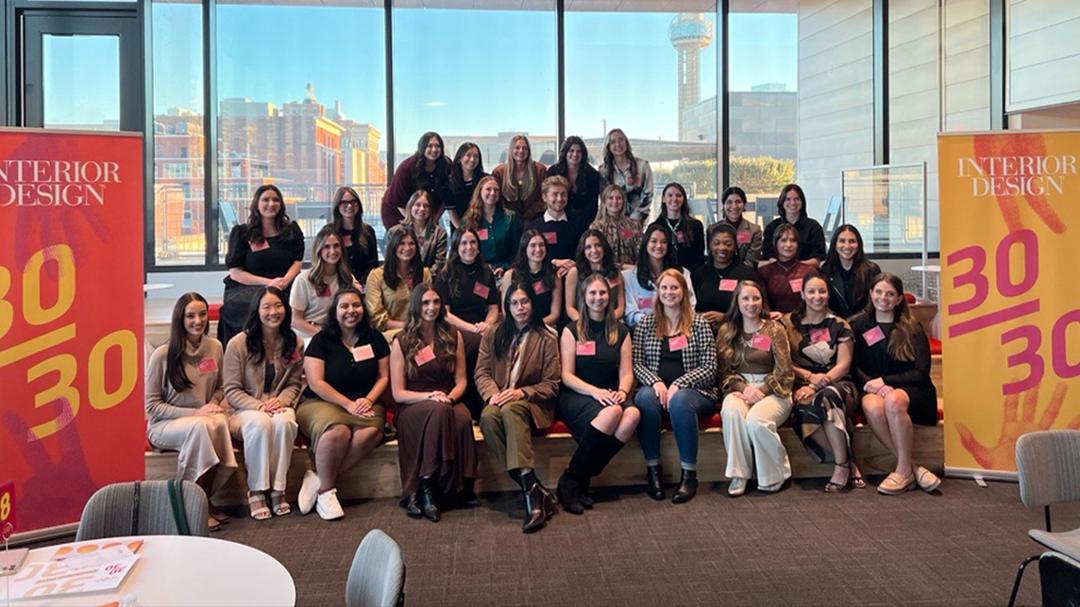These alumnae, who all graduated in the past five years from the College of Health & Human Sciences, credit their training for this up-and-coming industry distinction.
Interior design is so much more than furnishings and light fixtures.
As first-year students who choose to pursue this major at Texas Tech University quickly learn, there is a technical level to the profession that is rightfully taught through a program within the College of Health & Human Sciences.
Those who prevail through the initial semesters learn how building interiors impact well-being through factors like air quality, material selections and spatial needs. By utilizing the most up-to-date interior design software and technology combined with hands-on experiences, students learn to design safe, healthy and environmentally sustainable spaces that serve diverse populations.
For three recent interior design graduates – Courtney Coker (2019), Peyton Fikac (2020, 2021) and Ashlynn Gaines (2022) – this training helped distinguish them as Interior Design magazine’s 30 Designers Under 30, Class of 2024 from Dallas. They were formally recognized at a November 2024 event that united the inductees.
“I am thrilled to celebrate this achievement of our three talented alumni,” said Michelle Pearson, director of the interior design program. “This prestigious honor is a testament to their exceptional creativity, dedication and innovation within the field of interior design. Each of these remarkable women has demonstrated an unwavering commitment to excellence, consistently pushing the boundaries of design to create spaces that are not only beautiful but also impactful and meaningful.”
Courtney Coker
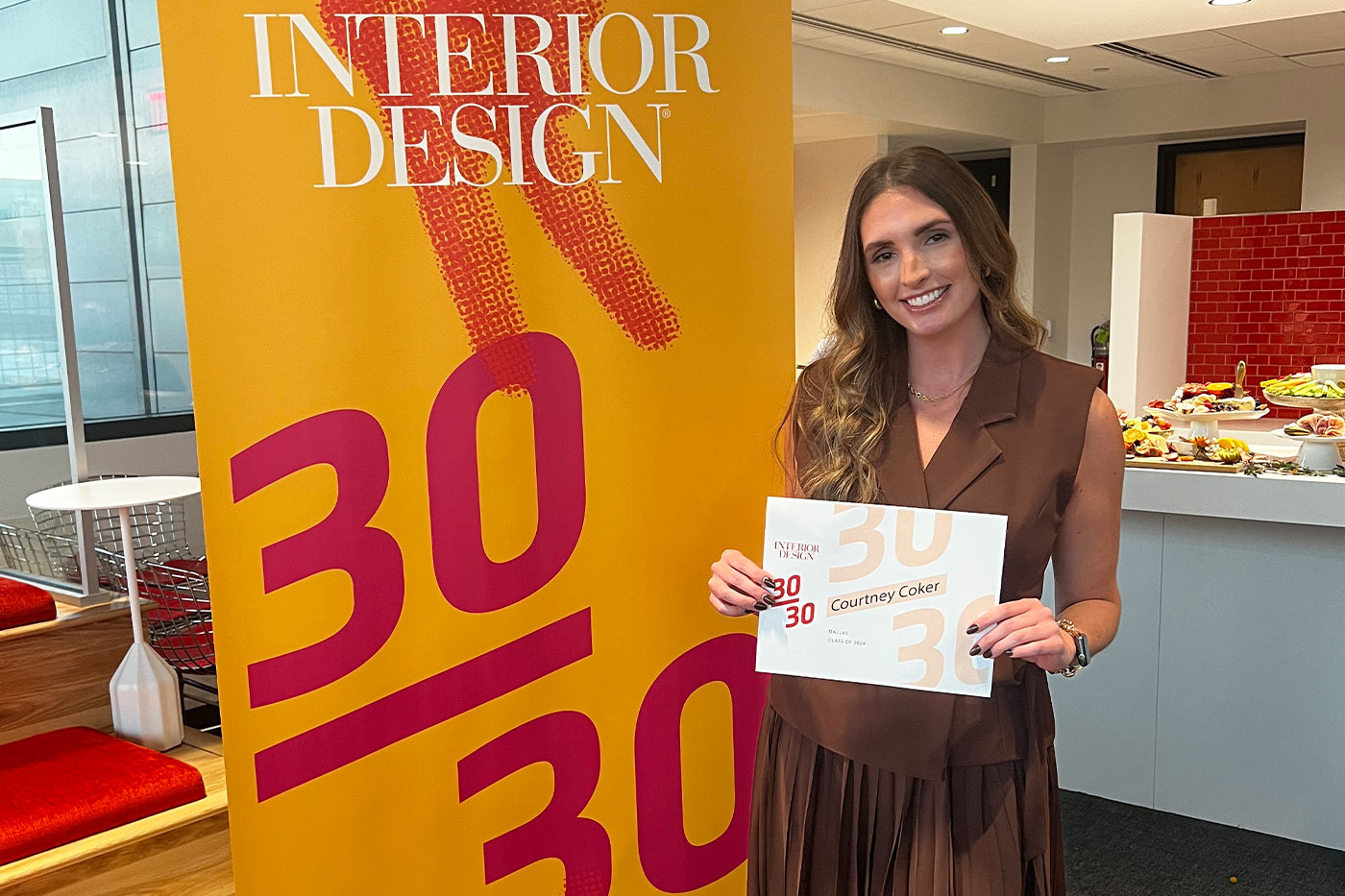
Pursuing a career in dance was Courtney Coker’s original plan when she moved from her hometown of San Antonio to attend Texas Tech as a first-generation college student in 2014. But after a year enrolled in the School of Theatre & Dance, Coker realized her passion would serve her better as a pastime.
As she began to explore alternative majors, she decided a way to combine her strengths in the arts and customer service would be through interior design. Coker was among many new to the program who believed they would have a residential focus similar to HGTV shows.
“I was thinking you go in, look at a space, think of some great things and it’s quickly sketched and brought to real life, she mused, “but it really opened my eyes to all of the different opportunities in this industry. I was challenged, in a good way. It prepared me for real life.”
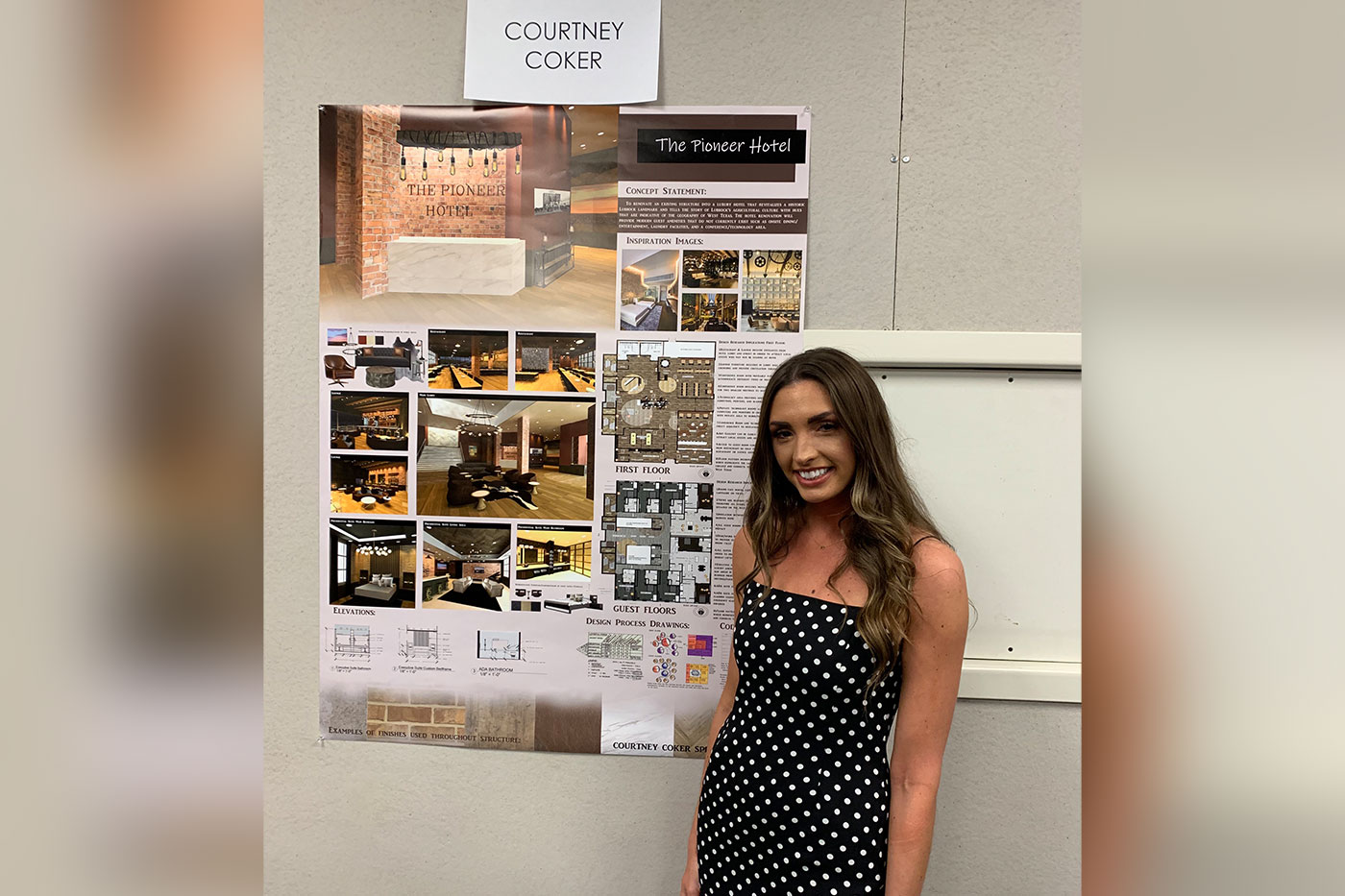
Through special assignments and practicing skills like hand drafting, Coker’s perspective continued to widen each semester – particularly helping her discover the rewarding aspect of commercial projects.
Following her graduation in 2019, Coker accepted a role at Perkins&Will in Dallas focused on healthcare facilities. Three years later, she transitioned to Gensler and now works on projects like workplace headquarters and law firms.
“I’m helping these people be successful in their careers with the spaces they work in every day,” she explained. “I’m focusing on things that I feel like a lot of people don’t really think about, like, how do you start your day when you get to your workplace? Do you have stuff that makes you want to go to the breakroom first? Do you have good appliances and a good culture where you can mingle with your coworkers in the morning, and then when you get to your office or your desk, is your chair comfortable? Is the lighting correct? Do you have everything you need during your workday?”
Efficiently answering those questions earned Coker the 30 Under 30 nomination from her coworkers. She initially didn’t believe the email was real, but after forwarding it within her company, she was met with a round of congratulations.
The achievement gave her pause to reflect on those who have supported her, like her parents, and those who have influenced her, such as the Texas Tech faculty who shared real-life experiences she still references to this day.
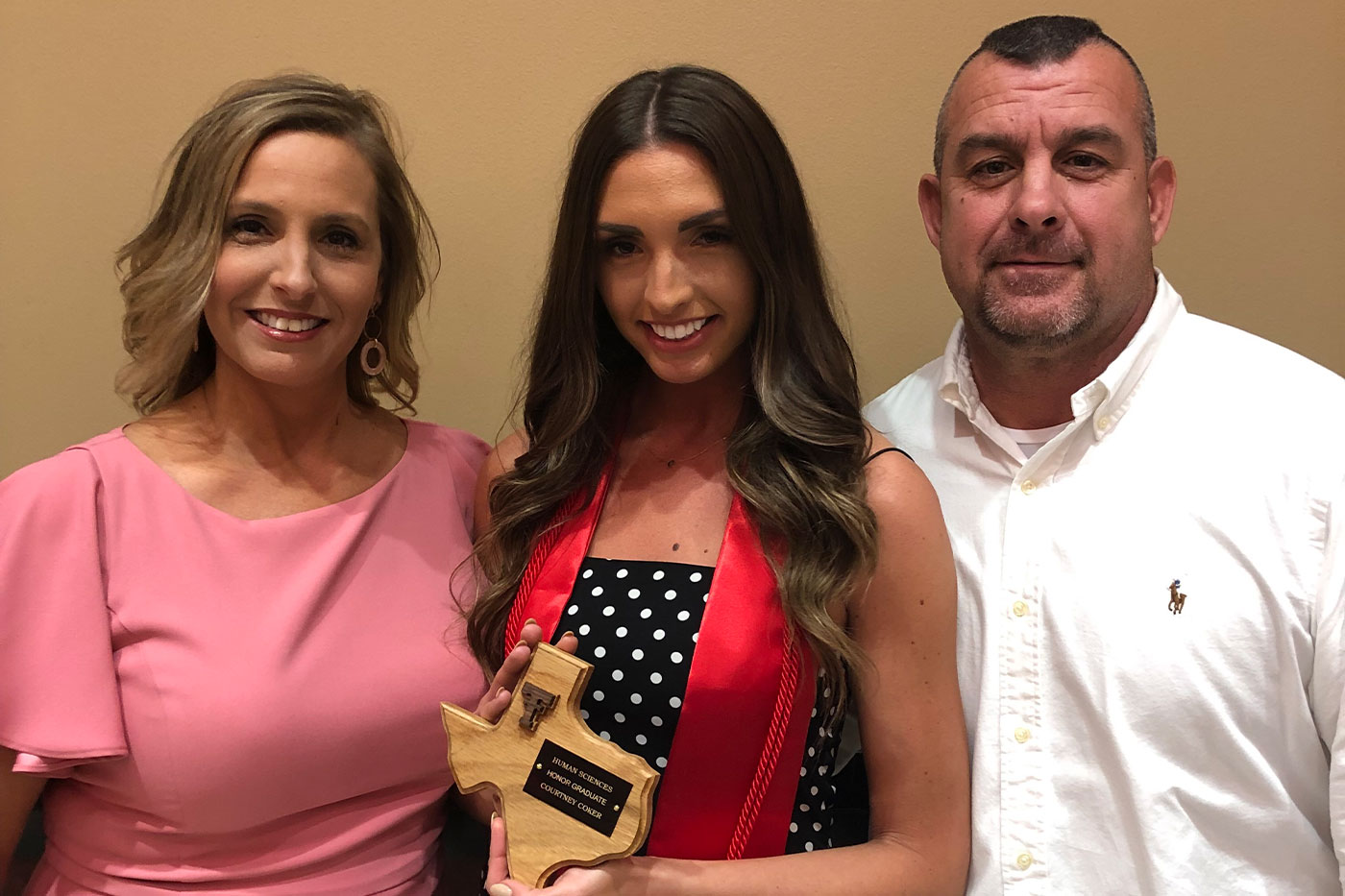
“Interior design is so subjective,” she explained. “There’s an ideal way of how things should go, but it never really works like that. You always have clients that have something unique about their project or their requests, so I think it was great our professors told us to be agile and have an open mind in order to come up with creative solutions. That really helps us when we’re out in the industry creating connections with our clients.”
Peyton Fikac
In the class following Coker was Peyton Fikac, who came to Texas Tech in 2016 with plans to flourish her interior design ambitions that began in middle school.
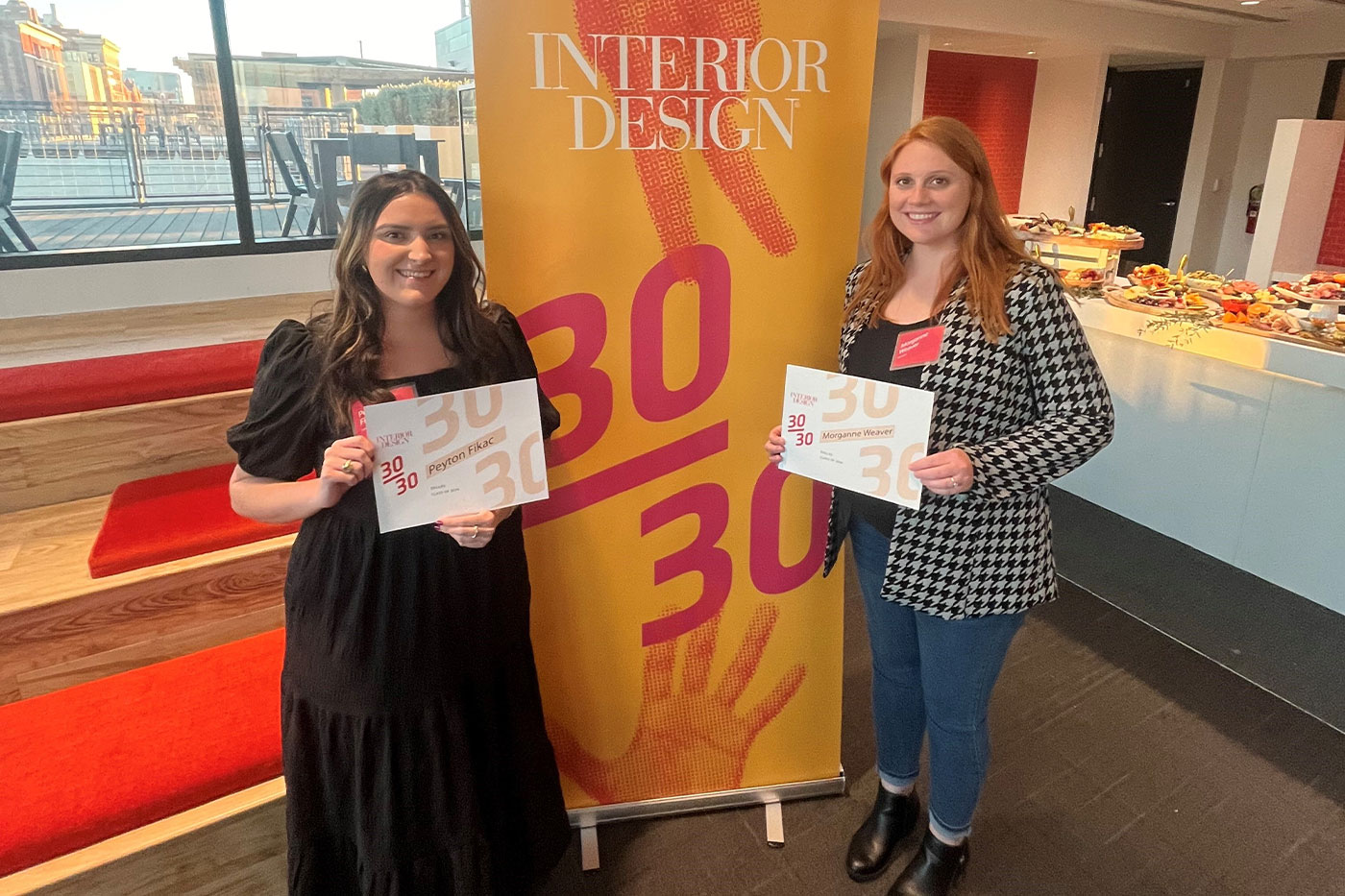
“I think it was Career Fair Day when an interior designer came and visited us, and I just fell in love with what she presented,” she recalled. “I was like, ‘This is a way for me to use my design skills and love for art and apply it to everyday life.’”
Her passion for interior design only increased during her first two years of the program, along with her incredulousness when others asked her to decorate their house.
She decided to become a College of Health & Human Sciences Ambassador not only to recruit students from Lubbock and statewide to the program, but to sadvocate for the industry.
“Yes, I can decorate your house, but that’s not what I do,” she said. “I want people to know how hard interior design is and how much work goes into it. You have to become licensed to be a registered interior designer. That credits you, and not everyone can do it. So, as an ambassador, I wanted prospective students to know what they were getting into.”
Over the course of her undergraduate degree, Fikac was involved in many unique opportunities her program provided her such as real-world projects, workshops and summer internships.
She found her education so impactful she even completed the Environmental Design master’s program. When she graduated in 2021, Fikac felt like her time at Texas Tech helped her form a wide network of connections.
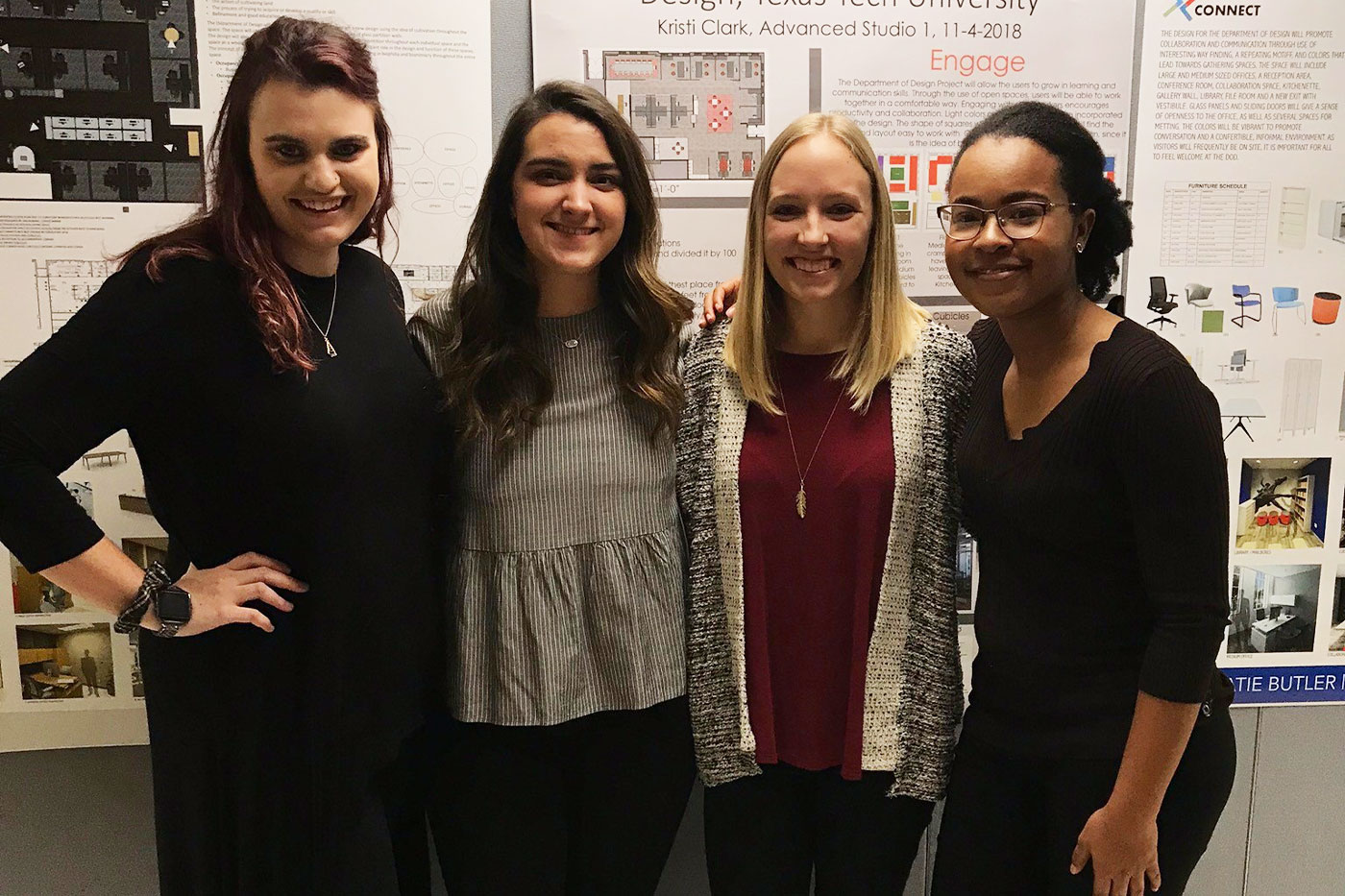
Unfortunately, while she was well prepared to enter the industry, the onset of the COVID-19 pandemic complicated her job applications. Most firms at the time were not hiring or were trying to recover from the hardships accompanying shutdowns and restrictions. Even when she was invited to interview, the interaction solely took place over the phone or online meetings.
Fikac endured this process for a couple of months until she was hired later that year at Arcadis in Dallas. She remains there as a junior designer, focusing on workplace projects like customer service and innovation centers for tech companies.
“That’s where most people spend the majority of their lives – in an office,” she said. “There’s a lot of research out there on how to improve the built environment for the workplace setting, especially post-COVID since it’s been hard to get people back into the office. So, it’s one of the areas that I always knew I wanted to go into, and it’s been fulfilling.”
Being selected as a 30 Under 30 awardee is an honor to her particularly because she has noted mostly senior rather than junior designers earn recognition for their accomplishments in the field.
The designation is much-appreciated affirmation that her skills are making a difference.
“I am on the right track to succeed in this industry, which is very hard and daunting,” she said. “That’s a great feeling that I made a good decision for my career and for myself.”
Ashlynn Gaines
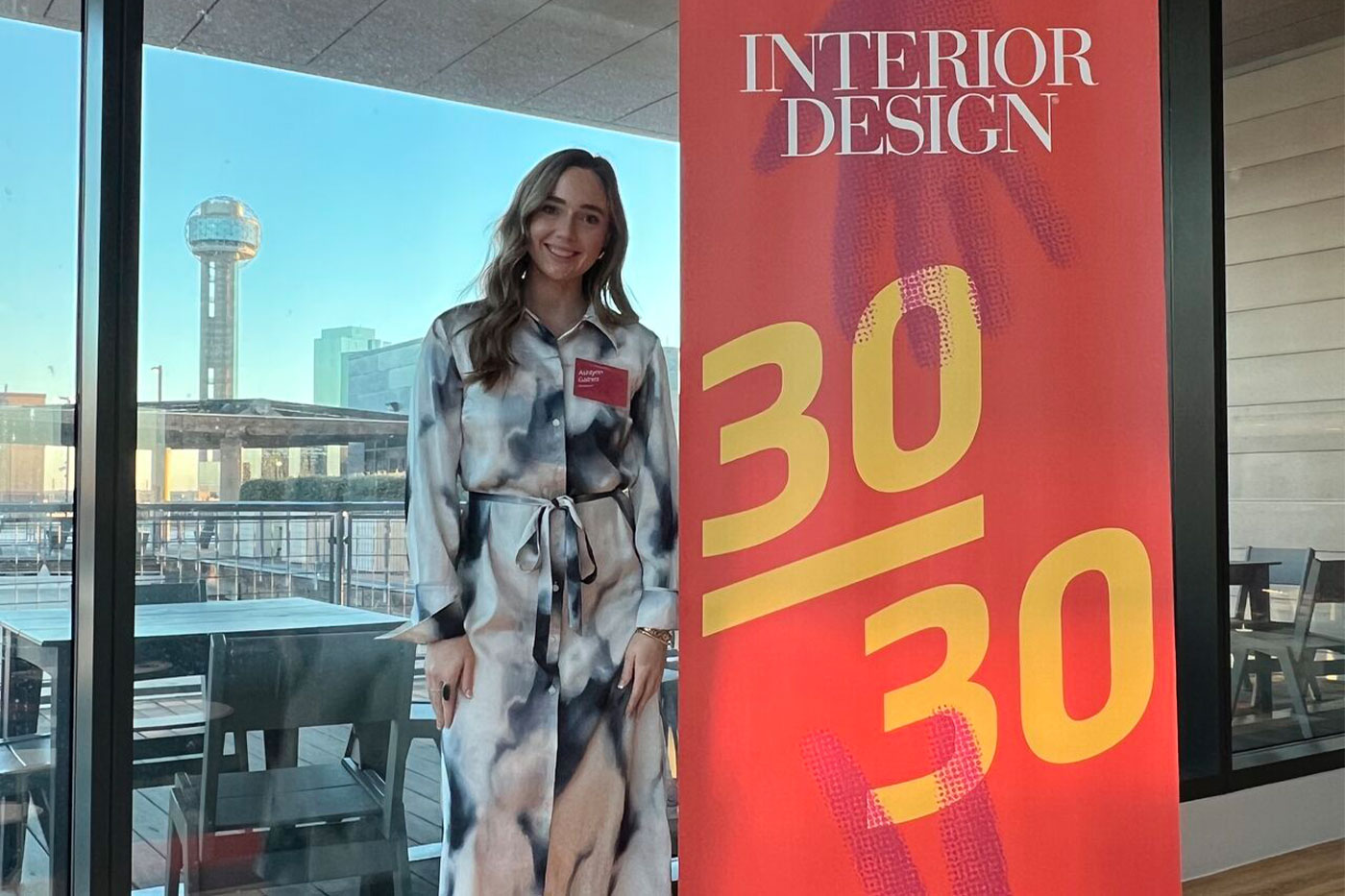
When Ashlynn Gaines ventured to Texas Tech from Dallas in 2017, she had plans to major in kinesiology and become a physical therapist.
There was just one roadblock.
“I quickly discovered within my first year that science wasn’t my strong suit,” she said. “I realized I needed to do more of a creative profession.”
As Gaines sought a creative career path, she drew inspiration from her grandmother, who was able to make a significant impact on others’ lives others through residential interior decorating. She decided she would pursue the design side of the industry instead, with dreams of making a lasting impression through commercial projects.
She immediately knew she made a good decision that would still benefit the health of others.
“As interior designers, our priority is the well-being of the person that’s actually using the space that we’re creating and designing,” she stated. “Whether it’s about sustainability, accessibility, acoustic comfort, aesthetics or flexibility and adaptability, all aspects are integral to health, making it incredibly fulfilling to work on these spaces.”
Each phase of studio work at Texas Tech was equally challenging and rewarding for Gaines. She not only learned how to hand draft construction documents, but also how to use industry-standard software like AutoCAD and Revit to create 2D construction drawings and detailed 3D models.
She further enjoyed her group projects.
“Those were some of my favorite assignments because when multiple creative minds all come together on a common task or goal, the things that we were able to create together were really impressive,” she remembered.
Gaines graduated in 2022 with a bachelor’s in interior design and minors in architecture and retail management. She felt like the world was her oyster at that point, and after applying to several different firms she found the best fit for her at Smithgroup Dallas.

She immediately began working on projects primarily within higher education and has since developed a niche interest in health and wellness facilities, including campus recreation and student union buildings. Gaines knows how vital these spaces are from her first-year experience at Texas Tech.
“When I lived on campus it was an easy walk over to the Student Rec Center,” she recalled. “I loved how spacious it was and all the options available. As a student, being able to work out and stay healthy really helped me thrive at Texas Tech. It’s incredibly rewarding to now create similar opportunities for other students at their universities.”
Her grandmother passed away a couple of years ago, but Gaines feels confident she would have loved to see the career she influenced – especially with her recent 30 Under 30 accomplishment.
“I still have newspaper clippings of interviews from her career,” she shared. “Reading them is a sweet reminder of how she inspired everyone around her. I believe she would have been incredibly proud of me, and I aspire to leave a lasting impact on the world and positively influence others through my career.”
Red Raider Recognition
Fikac was proud to see two familiar faces from her program among the impressive array of interior designers she was able to network with at the 30 Under 30 event.
She believes this is only the beginning, and more Red Raiders within their industry will also be honored in years to come.
“I want everyone to know how good the Department of Design is at Texas Tech,” she said. “As it gets more traction and even more resources each year, I honestly wish I could go back.”
Pearson assured that even as the years pass, the interior design program will continue to uphold a rigorous, interdisciplinary approach that combines design theory, technical proficiency and real-world application.
She is proud of how Coker, Fikac and Gaines reflect the payoff of listening to encouragement to grow, lead and innovate.
“The accomplishments of these alumni exemplify the values of our program and serve as an inspiration for our current students,” she said. “Their success reaffirms the importance of equipping emerging designers with the skills, knowledge and vision to excel in a competitive and evolving industry. We are immensely proud of their achievements and look forward to seeing the continued impact they will make in the field of interior design.”

